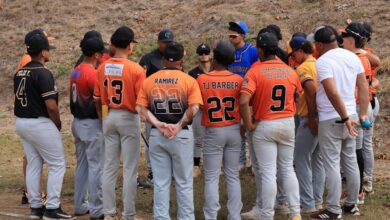Understanding the Touchline Ban: The Regulations and Repercussions

The world of Premier League football is a relentless carousel of high-stakes drama, tactical genius, and, occasionally, disciplinary action. For Chelsea Football Club, the spotlight recently turned to their new manager, Enzo Maresca, who finds himself facing an unexpected challenge even before fully settling into his Stamford Bridge role. News has emerged that the Italian tactician has received a one-match touchline ban, a development that will undoubtedly spark discussion among fans and pundits alike.
This isn’t merely a minor inconvenience; a manager’s presence on the touchline is often seen as integral to a team’s performance, providing real-time instructions, tactical adjustments, and motivational cues. Maresca’s enforced absence presents an early test of his coaching staff’s collective strength and the squad’s adaptability. How will Chelsea navigate this situation, and what are the deeper implications for their upcoming fixtures and the season ahead?
Understanding the Touchline Ban: The Regulations and Repercussions
Managerial touchline bans in professional football are typically issued for one of several reasons: accumulated yellow cards for dissent or technical area infringements, a direct red card for a serious offense, or an FA charge following an incident not dealt with during a match. While the specific details surrounding Enzo Maresca’s particular sanction haven’t always been broadcast with granular detail, such bans are a standard part of the disciplinary framework in the Premier League and beyond.
For managers, repeated offenses, particularly concerning conduct within the technical area or interactions with match officials, can lead to a sequence of yellow cards. These cautions accumulate over a season, much like they do for players, eventually triggering a one-match suspension. A direct red card, given for more severe dissent or aggressive behavior, results in an immediate suspension. In some cases, incidents caught by cameras or reported by officials after a game can lead to retrospective charges from the Football Association, culminating in a ban.
The immediate consequence of this disciplinary action is clear: Chelsea boss Enzo Maresca will not be on the touchline against Nottingham Forest. This means he will be barred from the technical area, unable to communicate directly with his players or coaching staff during the match. He must observe the game from the stands, relying on pre-match preparations and the capabilities of his trusted assistants to execute the game plan and make real-time decisions.
While a single match ban might seem minor in the grand scheme of a long season, its timing is never ideal, especially for a new manager looking to embed his philosophy. The first few games of a season are crucial for setting the tone, building momentum, and fostering a strong connection between the manager and the squad. Maresca’s temporary removal from this immediate engagement could subtly alter the dynamic for a pivotal early fixture.
Navigating the Tactical Void: How Teams Cope Without Their Commander
The absence of a head coach from the touchline is more than just symbolic; it presents tangible tactical and psychological challenges. Managers are the orchestrators, the strategists, and often the emotional heart of a team during the intense 90 minutes of a match. Their direct presence allows for immediate communication, on-the-spot tactical tweaks, and a visible source of reassurance or admonishment for players.
When the manager is in the stands, the primary responsibility for in-game management falls to the assistant manager. This individual, often deeply familiar with the manager’s philosophy and game plan, becomes the conduit for instructions. Communication typically involves pre-arranged signals, and sometimes, a discreet communication system (e.g., radio link to the dugout) can be used, though this is heavily regulated and often restricted to specific forms of communication, not direct real-time tactical adjustments.
The coaching staff’s cohesion and shared understanding of the tactical framework become paramount. They must be empowered to make decisive calls regarding substitutions, formation changes, and player motivation without the immediate input of the main boss. This situation truly tests the depth of a club’s coaching structure and the trust placed in the wider team behind the scenes. For Chelsea, it means their entire backroom staff will need to step up and ensure seamless continuity.
Psychologically, players might feel a slight shift. While professionals are trained to perform regardless of external factors, the visual presence of their leader can provide an extra layer of motivation and clarity. The challenge for Chelsea’s squad will be to maintain their focus, discipline, and execution without Maresca’s direct guidance echoing from the technical area. This demands a high degree of self-organization and strong leadership from within the playing squad itself.
Historical Perspectives and Chelsea’s Path Forward
Enzo Maresca is by no means the first manager to face a touchline ban, nor will he be the last. Throughout football history, numerous prominent coaches have served similar suspensions, from legendary figures to contemporary tacticians. These instances often provide a fascinating look into how resilient teams can be and how effective a well-drilled coaching staff can perform under pressure.
Sometimes, teams rally in their manager’s absence, demonstrating a collective will to perform for their absent leader. Other times, the lack of direct guidance can lead to disorganisation or a dip in performance. The outcome largely depends on the strength of the pre-match preparation, the quality of the assistant coaches, and the leadership qualities within the playing squad. It’s a true test of a team’s underlying character and structure.
For the West London club, this particular match against Nottingham Forest carries significant weight, especially in the early stages of a new managerial era. Every point is crucial, and every performance sets a precedent. Maresca’s tactical imprint will still be evident in the overall strategy, but the execution and immediate response to in-game situations will rely heavily on the empowered technical staff.
This scenario also highlights the importance of disciplinary awareness for all involved in professional football. Managers, much like players, are under constant scrutiny, and adherence to the rules of the game extends beyond the pitch. It’s a reminder that even at the highest level, conduct and discipline are vital components of the sport’s integrity.
Conclusion: A Collective Challenge and Opportunity
Enzo Maresca’s one-match touchline ban against Nottingham Forest presents an interesting early test for Chelsea Football Club. While undoubtedly a setback for the new manager keen to oversee every moment from the technical area, it also serves as a unique opportunity. It’s an opportunity for the assistant coaches to demonstrate their capabilities, for the players to show their self-reliance and adherence to the game plan, and for the club as a whole to prove its collective strength and adaptability.
Football is a team sport in every sense, extending far beyond the 11 players on the pitch. The tactical preparations, the detailed analysis, and the on-the-spot decisions are all products of a wider coaching unit. As Chelsea navigates this temporary challenge, the focus will remain on securing a vital result and continuing the journey of embedding Maresca’s vision for the team. The Stamford Bridge faithful will be eager to see how their Blues respond to this particular curveball, confident that the groundwork laid by their new boss will shine through, even in his enforced absence from the dugout.





